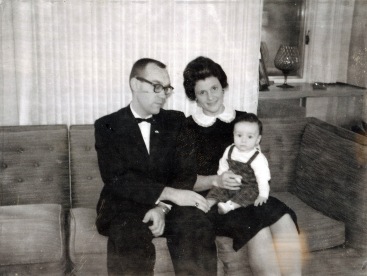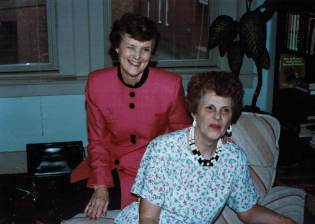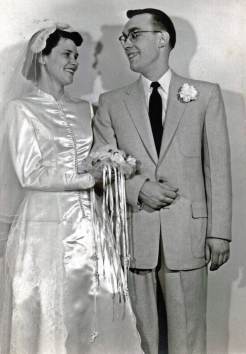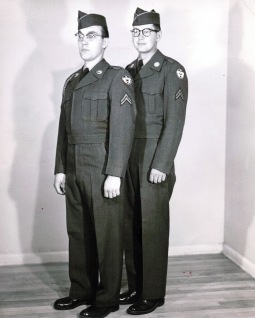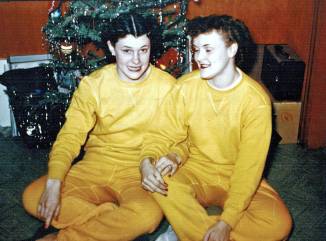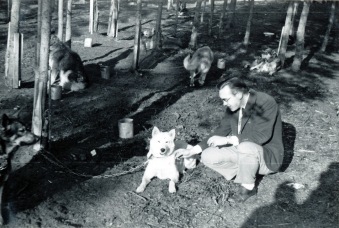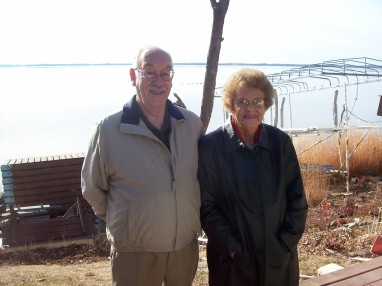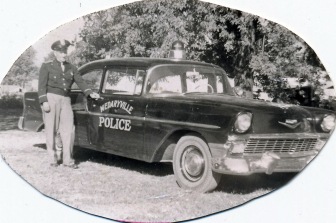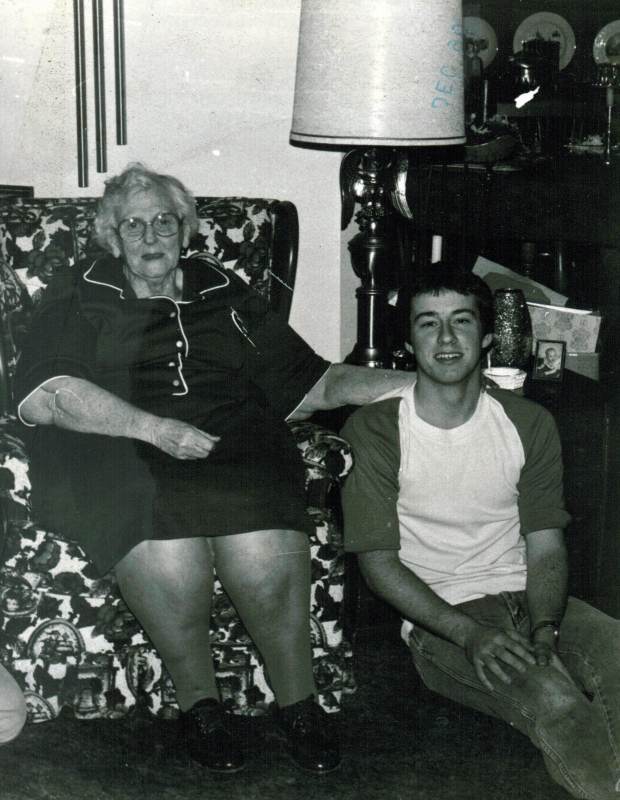When I was 10, Grandma told me I was adopted. No, it wasn’t an elaborate setup for one of her practical jokes, and she really didn’t mean to tell me. But it was news to me, and I had no reason to doubt her.
It was a late fall weekend in the early 1970s at our home in Hartley, Iowa. Grandma, Grandpa and Aunt Ellie were visiting us. Mom and Dad took advantage of having temporary live-in babysitters and went out that evening.
Shortly after my parents left, I lost my temper with Grandpa for an excellent reason: He sat in my spot on the couch. Yes, I beat “The Big Bang Theory” to that compulsive behavior by a few decades … they may owe me for that.
Instead of haranguing Grandpa until he moved, my response was to stomp from the family room to the living room, crank up the thermostat, sit cross-legged on the large floor register with an afghan blanket over my head and create a one-person, foul-tempered sweat lodge (another compulsive behavior).
It wasn’t long before I heard Grandma heading in my direction. Apparently, my family room exit hadn’t been as subtle as I really hadn’t wanted it to be. Grandma sat in the rocking chair in front of me and proceeded to give me the what-for.
It started as expected with much “respecting your elders” and “controlling your temper” – stuff I also got regularly from Mom and Dad – but I could tell Grandma was bringing more than the usual determination to this scolding. So I stayed hunkered under the safety of my blanket and, in my mind, converted her voice into an adult Peanuts character. She may have been delivering a stupendous dressing down, but it was mostly “wah wa-wah wah wah” in my head.
Even so, I was vaguely aware that her admonishment had gone back to my arrival in this world. At any age, you know it’s serious when a talking-to goes back that far.
Then she said it.
“… and when your parents got you …”
“Got you.” I don’t know why those two words stood out then. Any other time, I would have assumed it was just another example of the odd way adults occasionally talk – as if she were avoiding saying “had you” so she could also avoid any chance of getting into an uncomfortable “Where do babies come from?” discussion. She would have been safe with “had you”: By that time, I had secretly read from cover to cover my parent’s copy of “Everything You Always Wanted to Know About Sex, But Were Afraid to Ask.” I didn’t understand much of it but, needless to say, the cat was already way out of the bag on the baby-making topic.
I flipped up the front of the blanket, looked straight at Grandma and cut her off midbluster: “What do you mean ‘got you’?”
Grandma froze. On the opening kickoff of the first football game my senior year in high school, I was hit so hard, I actually saw stars. You wonder where unusual expressions like that come from. Then it happens to you, and you get it. Those few seconds after I asked Grandma to explain herself helped me get how all the air could be sucked out of a room.
Grandma finally recovered and replied, “What are you talking about”? (She knew what I was talking about.)
“You said ‘got you.’ Don’t you mean ‘had you’”? (I knew what she meant.)
“Well … uh … what I wanted to say was … well … it means … ack! Boy, you’re adopted. There, I said it. Do you know what that means?”
“I know what being adopted is. But I don’t remember living anywhere else or with anybody else.”
To that point in my life, my concept of adoption was shaped largely by the movie “Oliver!“: Being an orphan waiting for adoption meant days filled with pocket picking, extravagant song-and-dance numbers and a severe lack of porridge.
Grandma clarified:
“No, you wouldn’t remember that far back. You were just a few days old when your mom and dad got you [those words again]. But that doesn’t mean they love you any less. They couldn’t have children of their own at the time, so they went to an adoption center in Sioux City. After a while, the center called and said you were ready and waiting for them. They were so excited. Your mom and dad have always been your parents and they always will be. You’re stuck with your ol’ granny too.”
We sat in silence for a few minutes. Finally, Grandma asked whether I wanted to come back to the family room.
“No, I think I’ll stay here awhile.”
So Grandma left, and I disappeared back under the blanket. I was sound asleep in my bed when my parents got home. Mom came into my room and gently awakened me.
“Grandma told me what she told you. Do you have any questions?”
“No, I’m OK.”
“Well, if you want to talk about it tomorrow, just let me know, OK? I love you.”
“I love you too, Mom. Good night.”
That night was 43 years ago, and that’s been the extent of any discussion of my adoption with anyone in my family … and that’s fine with me.
I know not all adoptions are the same, but for me (even at 10), it was never a question of who “had you” or “got you” or whether a stork dropped you down the chimney. It’s always been about who loves you, who’s cared for you and who’s helped you become what you think you want to be. And I supposed if I hadn’t done anything bad enough in my first 10 years to compel Mom and Dad to trade me in for a less-temperamental model, I probably had half a chance of staying around another 10 years. I did test that assumption many times though.
I was fortunate to be “gotten” by loving and supportive parents and families. Although the Indiana side’s behavior has occasionally tempted me to play the adoption card (“Hey, don’t look at me – I’m not a blood relation to these goofballs!”), I know I’m just as culpable … “family” wears off onto you pretty quickly, and it’s something I’d never want to wash away.
The following is from a letter Grandma wrote to a niece in the late 1970s. Although I wasn’t the letter’s recipient, I think it’s close to what Grandma was trying to tell me that night on the floor register:
Isn’t it great to have family and to stay close to them? It’s such a little thing to be considerate to one another. One can go through almost anything if there’s love in the heart. Don’t ever let ‘family’ down. They’re the only ones who will stand by you in the end.
